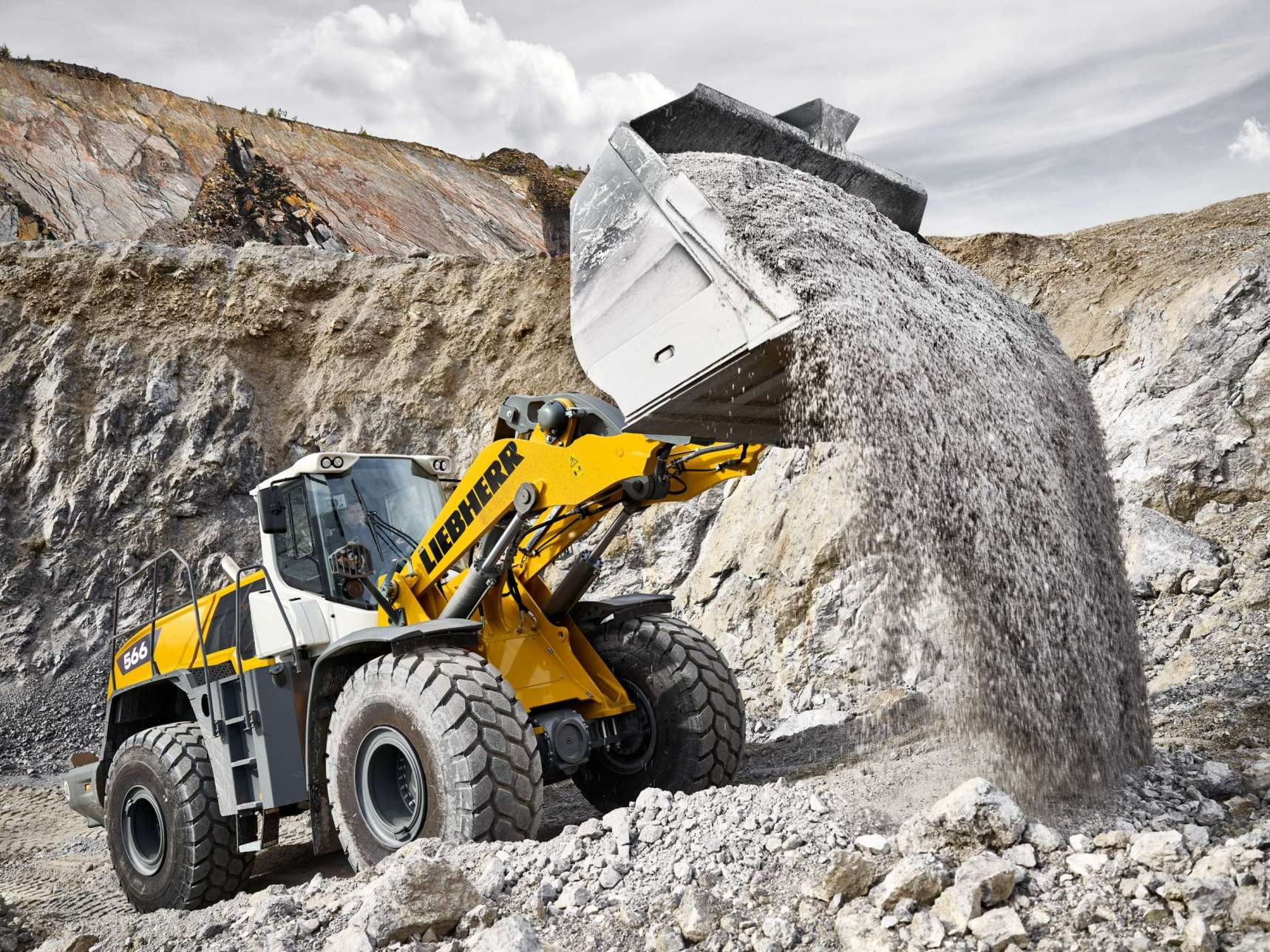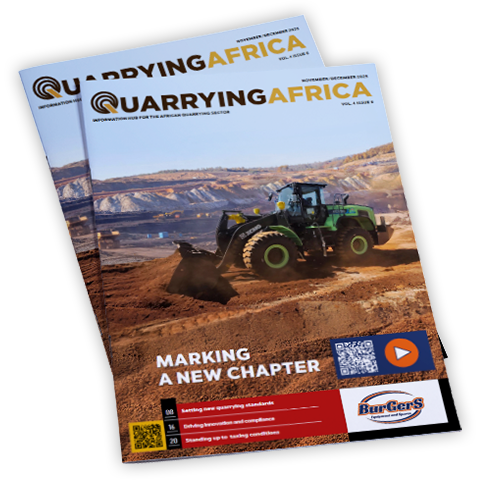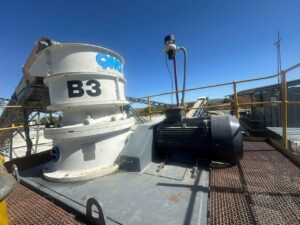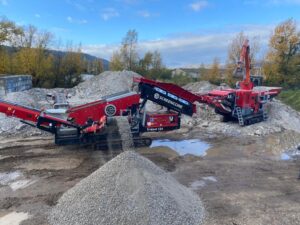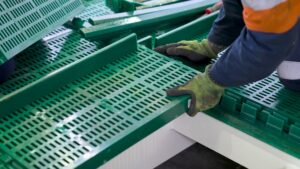Liebherr has developed the three new wheel loader models at the Bischofshofen plant, its long-standing Centre of Excellence for Wheel Loaders. Decades of experience in designing wheel loaders was one of the keys to success in the development process.
“We also analysed our international customers’ demanding wheel loader operations over a long period. This included observing different mining operations around the world, some in Africa and South America, coal handling in India and timber work in Russia. Our customers’ experiences were crucial to the development of the new wheel loader series,” explains Wolfgang Rottensteiner, who is responsible for sales of the wheel loader series at Liebherr-Werk Bischofshofen GmbH.
The new L 550, L 566 and L 580 wheel loaders feature the proven hydrostatic Liebherr travel drive, which is renowned for its great efficiency. Thanks to increases in engine power – approximately 17% for the L 550 – the travel drive is even more powerful while maintaining the same low fuel consumption. This is advantageous when accelerating or penetrating material and lowers fleet fuel costs. Liebherr has installed the diesel engine in the rear, where it also acts as a counterweight thereby increasing the tip load for the wheel loaders.
Liebherr has three lift arm versions on offer for the new models. Firstly, the Z-bar kinematics, which come to the fore particularly in the lower lifting range and for the break-out force. Secondly, the industrial kinematics, which have been designed for working with heavy working tools such as high dump buckets and log grapplers. Finally there are the High Lift lift arms – an extended version of the z-bar kinematics with the longest lift arms in this wheel loader segment. These ensure greater reach and more productive loading procedures at great heights, which is beneficial when loading railway wagons or trucks with high sides.
The working hydraulics of the wheel loaders will also impress customers with their larger components and new electrohydraulic pilot control. This technology also ensures responsive movements of the lift arms, independent of the size or weight of the working tool. Liebherr also offers a new, optional weighing device on the bases of the electrohydraulic pilot control. The assistance system works automatically as a check scale and provides real time information about the loading procedure. This data helps machine operators to precisely fill dumpers, trucks and railway wagons with the specified quantities and to avoid overfilling.
The electrohydraulic pilot control enables operators to perform individual adjustments on the new wheel loaders. For example, they can set lift limitations and maximum tilt-out heights, thus reducing the risk of accidents in areas where space is restricted. The tilt-out speed can also be programmed to protect lift arm components and the installed equipment.
In addition to these optimisations for operating safety, Liebherr has also invested in the operational reliability of the new wheel loaders. Because they are faced with an abundance of challenges: Remote operating areas, extreme climates, demanding loading materials and multi-shift operation over a long period demand a high degree of reliability. For this reason, Liebherr has installed larger axles than were fitted on predecessor models. Liebherr has drawn on proven components from its other wheel loaders for the core components and steel construction. When maintenance and servicing are required, Liebherr supports its customers with a global sales and service network.
The modern design of the new L 550, L 566 and L 580 wheel loaders has particular functional advantages in addition to the bold new look. The clean lines on the rear as well as the large glass surfaces in the cab facilitate good all-round visibility. Furthermore, the new reversing camera, which is installed in a protected position in the engine bonnet, assists the machine operator to keep an eye on the area to the rear. Numerous details that have been seamlessly integrated in the wheel loaders’ exterior design make service work easier. For example, on the L 566 and L 580, the engine bonnet opens to the rear, making the diesel engine freely and safely accessible.
